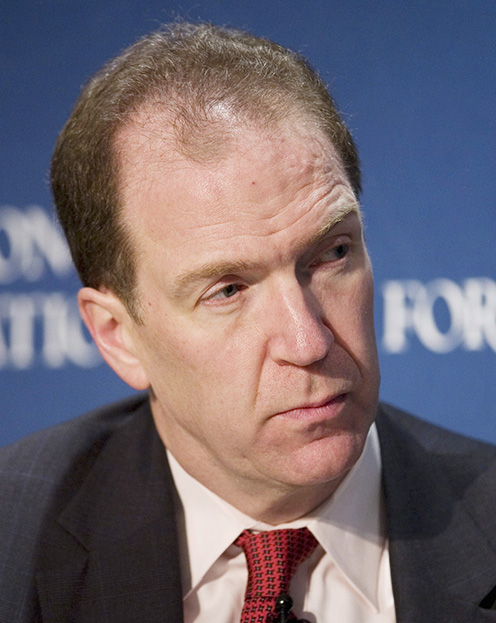WASHINGTON, (Reuters) – The U.S. Treasury’s top economic diplomat, David Malpass, yesterday accused China of enabling poor governance in Venezuela by propping up the socialist government of President Nicolas Maduro through its oil investments.
In a speech at the Center for Strategic and International Studies, Malpass said China’s focus on commodities extraction and opaque financing deals in the region had hurt, not helped, countries.
His attack on China’s role in aiding the Venezuelan government came a day after U.S. Secretary of State Rex Tillerson raised the prospect of a Venezuelan military coup ahead of a five-day tour of Latin America.
The Trump administration has imposed individual and economic sanctions on Venezuela’s government, accusing it of rights abuses and corruption. Venezuelan President Nicolas Maduro says the United States is seeking to oust him in order to improve access to the OPEC nation’s oil wealth.
Malpass, who is Treasury’s under secretary for international affairs, said Venezuela’s deep economic crisis and lack of democratic rule, which the U.S. and opposition blame on Maduro’s policies, were one of the “biggest disappointments and disasters” of the region.
“Most of the blame for Venezuela’s economic collapse and humanitarian disaster falls squarely on Venezuela’s rulers, but China has been by far Venezuela’s largest lender supporting poor governance,” Malpass said.
He said the international community and Venezuela’s people would ultimately be left with rebuilding the country once democracy was restored.
“China denominated many of its loans to Venezuela in barrels of oil,” said Malpass. “This has the effects of masking the exact amount of payments that China made to Venezuelan officials and that Venezuelans are expected to make to China in the future,” he added.
China has said it is confident in Venezuela’s ability to properly handle its debts. Venezuela has borrowed billions of dollars from Russia and China, primarily through oil-for-loan deals that have crimped the country’s hard currency revenue by requiring oil shipments to be used to service those loans.
Malpass also expressed concern at a decision by the Washington-based Inter-American Development Bank, the biggest lender to the region, to hold its 2019 annual meeting in China, saying the gathering should be held in the Americas.
“The Bank’s 60th anniversary is an important milestone to celebrate the Bank’s accomplishments … and it would be fitting to hold the meeting in the hemisphere among major donors and borrowers,” Malpass said.
The IADB did not immediately respond to a request for comment on Malpass criticism.










